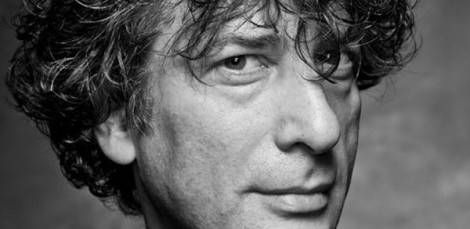
What Neil Gaiman’s “Make Good Art” Speech Has Taught me about Books and Creativity
Right before becoming a teacher’s assistant in a creative writing class, I watched Neil Gaiman’s “Make Good Art” speech for the first time. I used it in the class and the students immediately enjoyed exhortations about how to react to life’s difficulties, like “Cat exploded? Make good art.” I think they took some aspects of the creative journey to heart, but of course many of the things Gaiman discusses are more interesting when you live them than when you hear about them.
What rings true for me is that choosing a good book, and making reading a substantial part of one’s life, have some things in common with Gaiman’s points. A few stand out:
three ways to keep a job (or a reader)
One of Gaiman’s funniest jokes is about how there are three things that help people keep their jobs, and that any two of them are enough to keep a job:
I think this can be extrapolated to books as well; reliable, high quality authors keep us coming back for more, but we are also willing to read things that are near and dear to us (easy to get along with), even if perhaps they aren’t the best work of our favorite authors. We are also willing to read a sharp series in our favorite genre even if the author takes years and years to provide us with the concluding volume of our beloved series.
moving toward or away from the mountain
Most readers don’t see their book reading as a trajectory or a career; in many cases, reading specifically toward something would take away some of the pleasure. That being said, I think it can sometimes be a valuable way to think about our finite reading time, especially as busy working adults or overloaded students. Gaiman chose work based on whether it moved him toward or away from the mountain, or the goals he had set for himself.
Would it be so bad if we picked our books based on our goals? Some would be overt, like self-help and business books, but others would be about self-care when we need a really light read in a heavy world, and others would be about choosing books that have relatable characters or that inform us about a part of existence that we don’t know well enough. Perhaps we should think about our reading as taking us somewhere, and choose between the always-too-many-to-read books based on what we really need and what really gets us closer to the mountain.
problems of success (professionally replying to email)
For people who find themselves crowding reading out of their lives, Gaiman’s point about the problems of success being difficult might resonate. When we aren’t successful, or are between jobs or studies, we often find ourselves reading a lot. Those times are when we get the most chance to delve deep into topics, but sometimes that enjoyment can be overshadowed by the worries about what we want to be doing instead of reading so much.
When success hit Gaiman, he realized that the problems he faced before were in some ways easier to handle, and he cited the example that he was replying to email more than he was writing during one point in his more busy part of his career. He had to intentionally find a way to reduce email time in order to get back to his craft.
Many readers also have other goals, and so crowding reading out of your life is just as possible as it was for Gaiman to crowd writing out. It seems like a good reminder that, when we get busy with the good things that are part of our goals, it doesn’t hurt to re-evaluate before we simply say “I’m just too busy to read.”
Make mistakes
This one is pretty self explanatory, but one of the most important points is that we should move beyond our typical reading choices when we can, never knowing what we’ll find. Certainly, a new book may confirm that mystery will never be your genre, but a new read might also turn out to be the start of a whole world opening up for you. Just as Gaiman exhorts people to make mistakes and find out what interesting conclusions lie on the other side of those mistakes, I encourage readers to broaden their minds and find a way to try new books whenever they can.

















